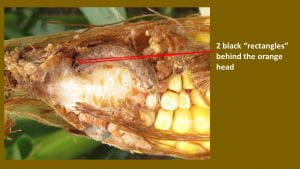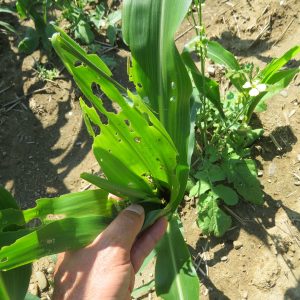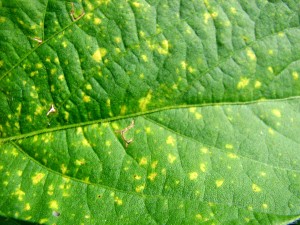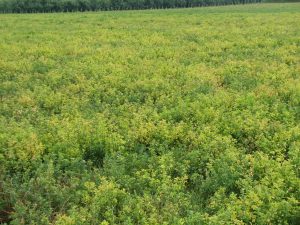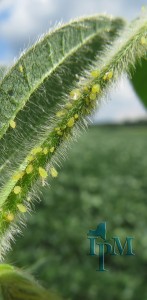Contents
Are you aware of Tar Spot?
Tar spot was first detected in New York State last year. When you are out scouting be on the lookout for this new disease of corn in NYS. If you think you have this disease in your fields, contact your Regional Cornell Area Field Crop Specialist. For Identification of this disease please view the following website:
Western Bean Cutworm
Peak flight of the western bean cutworm moths was the first week in August. Make sure to scout pretassel corn that is going to be harvested for grain. Western bean cutworm does not cause economic losses in silage.
For more information, view the following website: https://cals.cornell.edu/field-crops/corn/insects-corn/western-bean-cutworm
2022 Field Corn Pheromone Trapping Network
Fall Armyworm
Fall armyworm moth captures have been low this last week. For more information, please view the following website: https://extension.entm.purdue.edu/fieldcropsipm/insects/fall-armyworm.php
Downy Mildew on Soybeans
Downy mildew is starting to appear in soybean fields. This disease generally does not cause yield losses. Even if you wanted to control downy mildew the current fungicides are not all that effective.
For more information, please view the following website:
https://cals.cornell.edu/field-crops/soybeans/diseases-soybeans/downy-mildew
Potato Leafhopper in Alfalfa
Potato leafhopper (PLH) infestations have been low this week. There were a few reports of PLH over threshold in new seedings. It is very important to scout new seedings since they are more vulnerable to PLH when very small.
As we start getting closer to fall the potato leafhoppers will start to migrate back to their overwintering sites in the southern US. It is best to continue to scout for potato leafhopper.
For more information on thresholds and management, view the following video:
IPM for Potato Leafhopper on Alfalfa
Soybean Aphids on Soybeans
Soybean aphid populations have been low this last week. Make sure to continue to scout for the aphid until the R6 stage of growth. Natural enemies play a major factor in controlling soybean aphids. This may be one of the reasons we have not had large infestations this year. For more information, view the following website: https://cals.cornell.edu/field-crops/soybeans/insects-soybeans/soybean-aphid.
Japanese beetles on Soybeans
Every year I get questions on Japanese beetles in soybeans. The they are a defoliator but RARELY cause economic losses in soybeans. During the reproductive stage of growth, the beetles can damage up to 20% of the leaf area and still not lose yield. For scouting and threshold information please view the following website: https://extension.umn.edu/soybean-pest-management/japanese-beetle-soybean
Crown Rust on Oats
The have had reports of crown rust on oats. This disease can cause economic losses to oats. There is a good article on “Managing Oat Crown Rust to Prevent Yield Loss” by Michael R. Fulcher, Gary C. Bergstrom, Mark E. Sorrells, and David Benscher. https://blogs.cornell.edu/whatscroppingup/2019/08/26/managing-oat-crown-rust-to-prevent-yield-loss/


